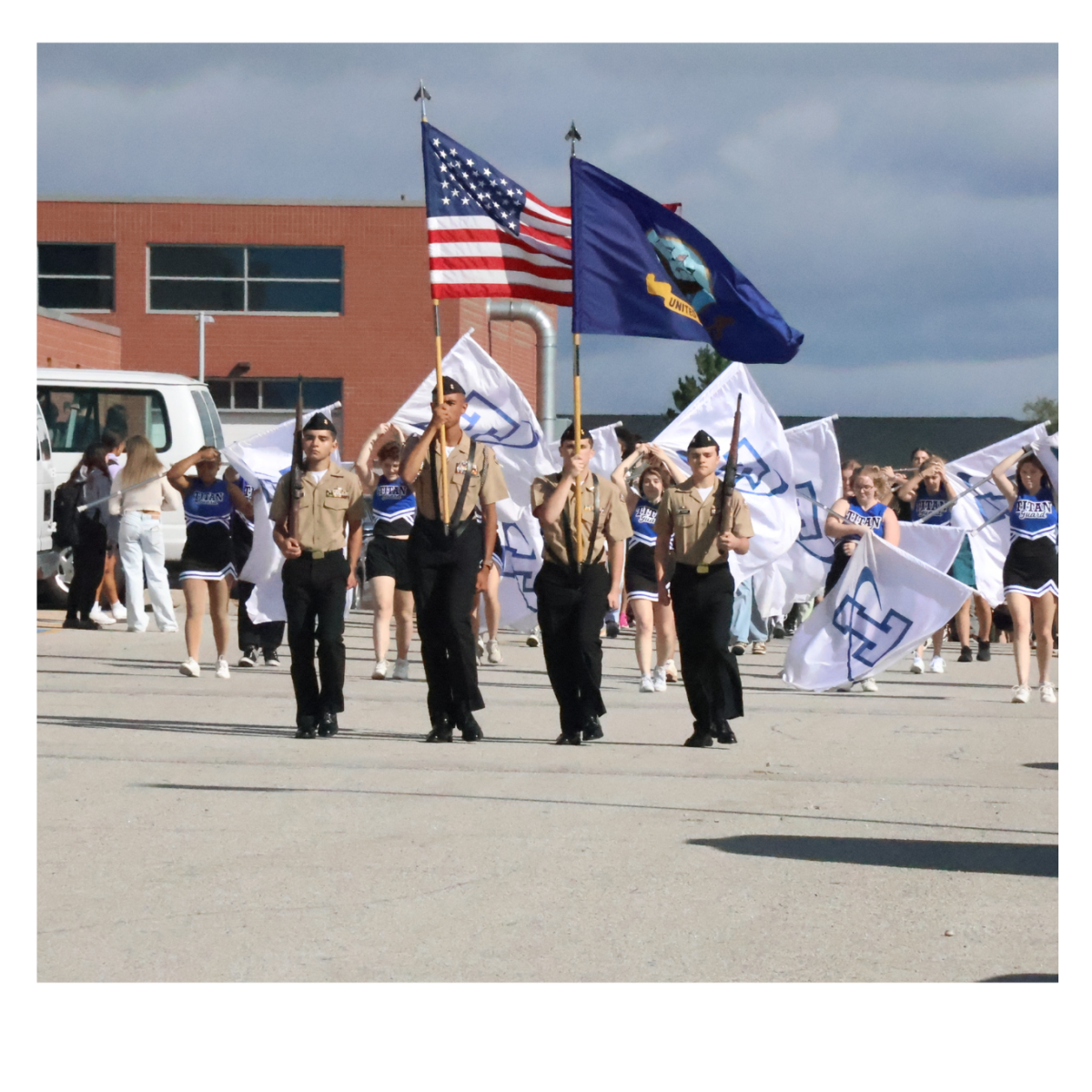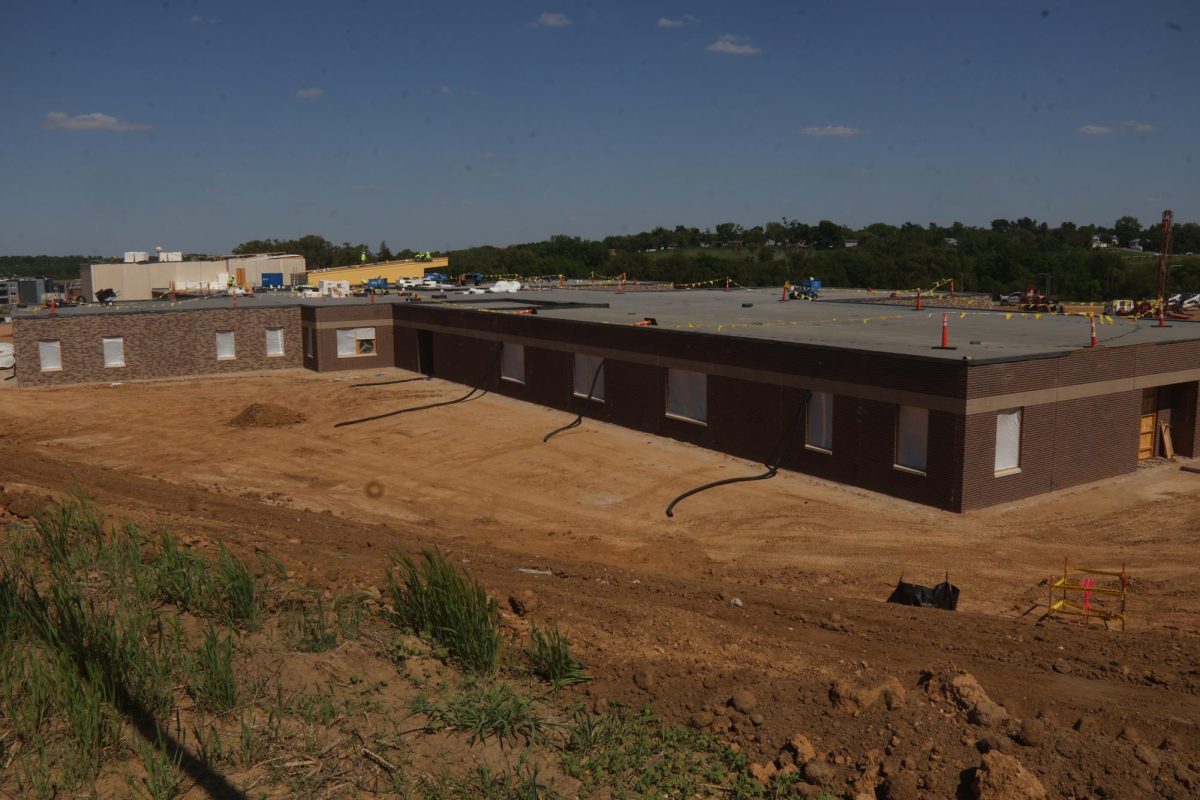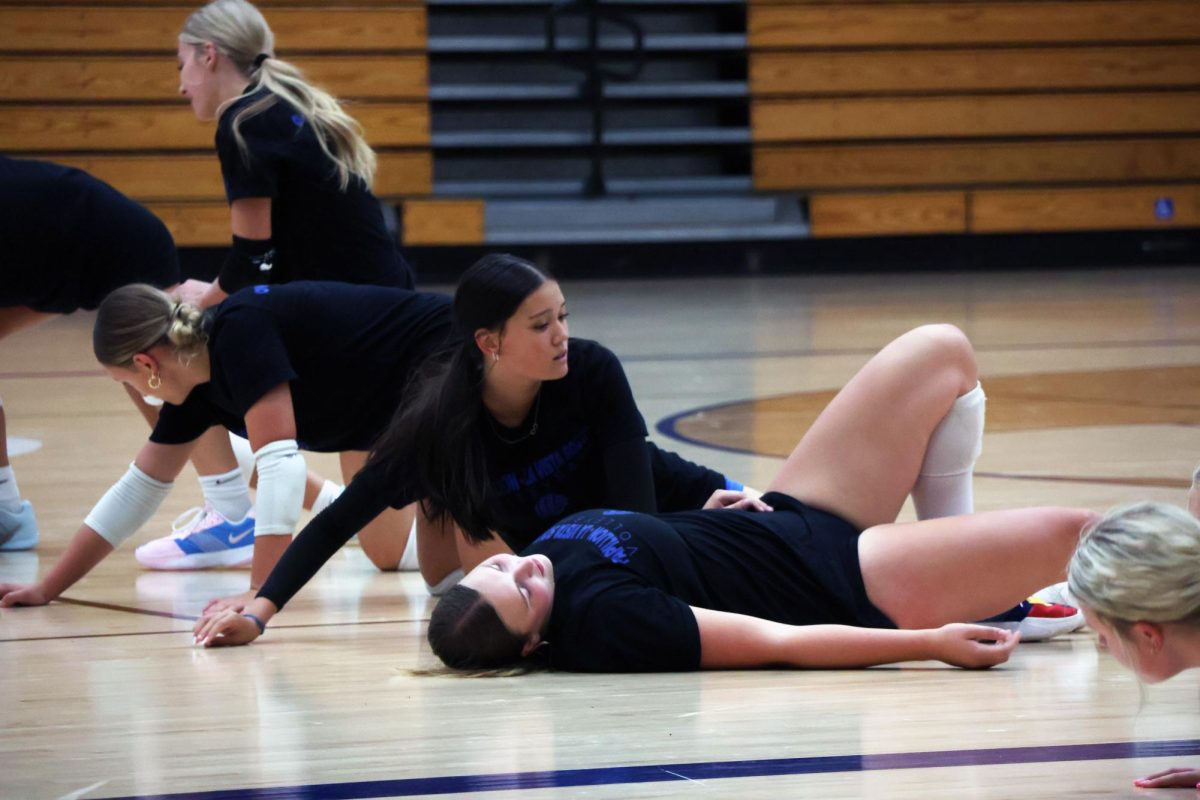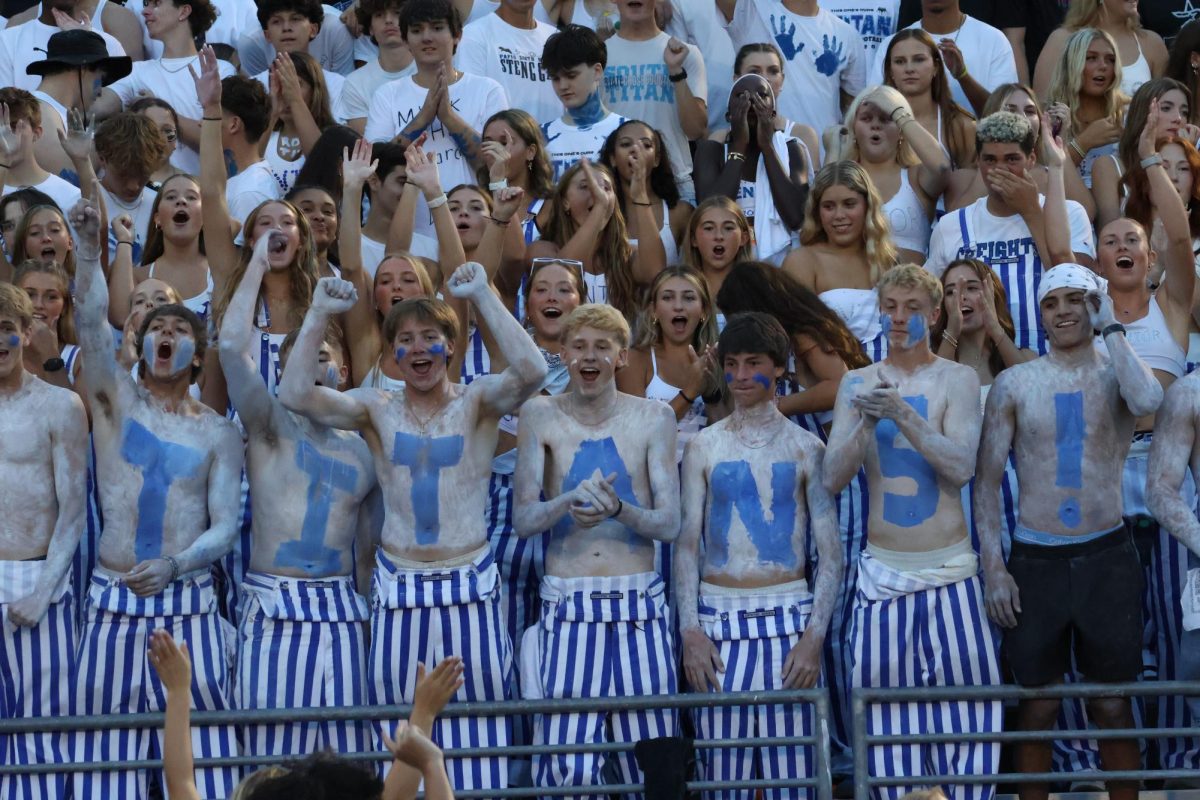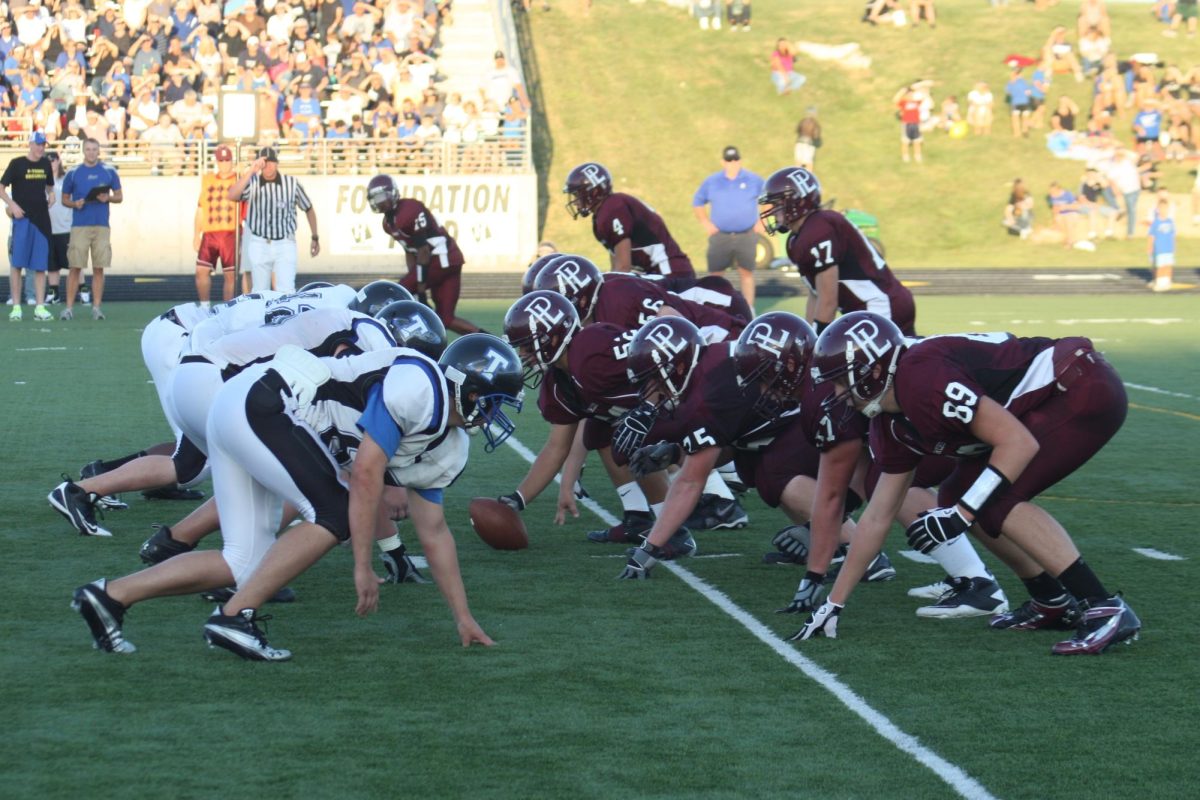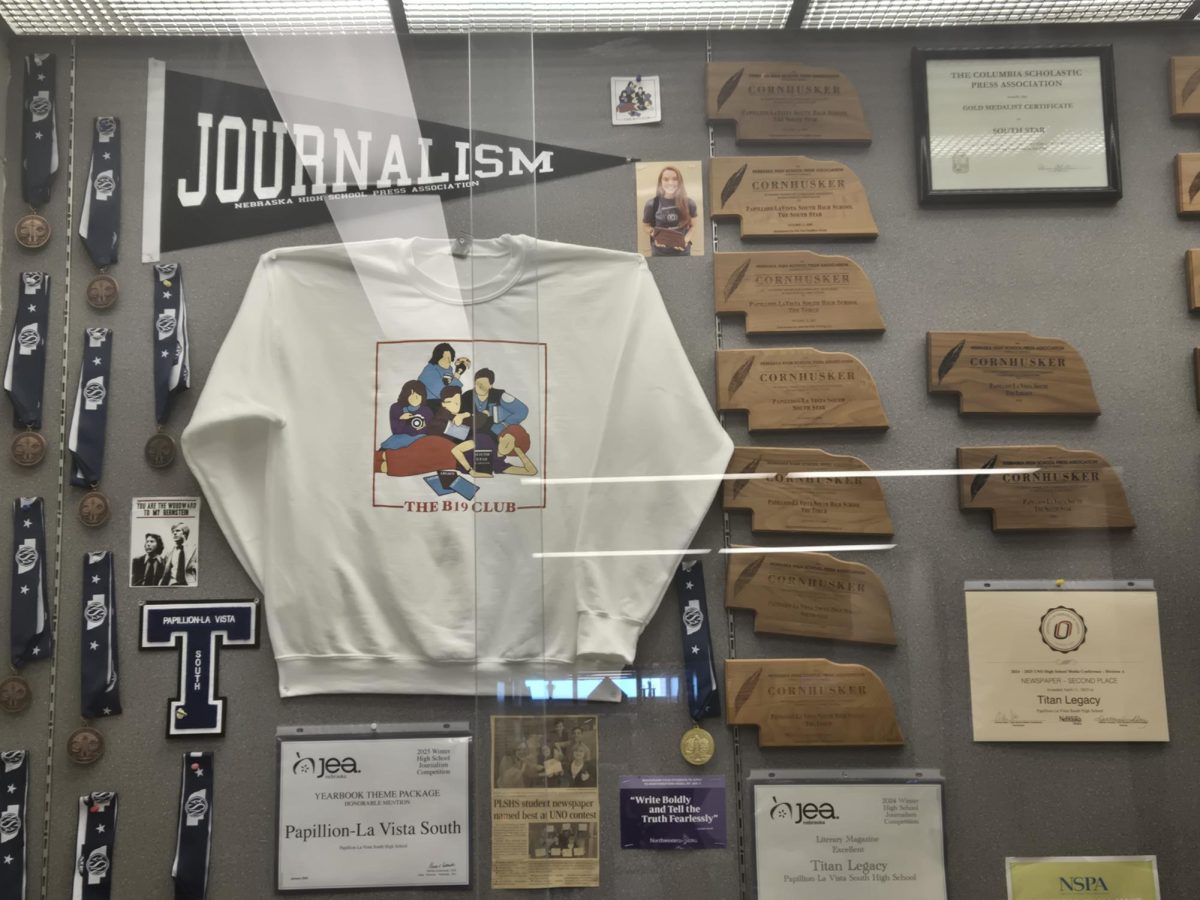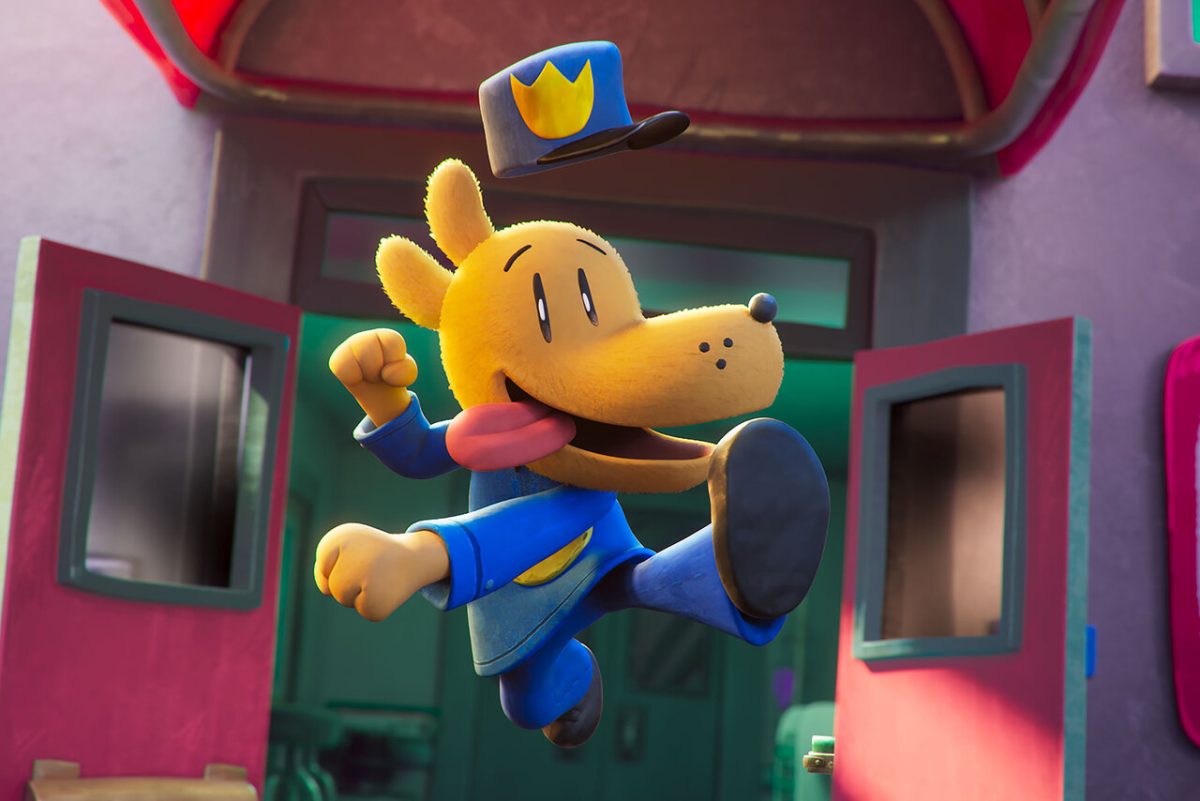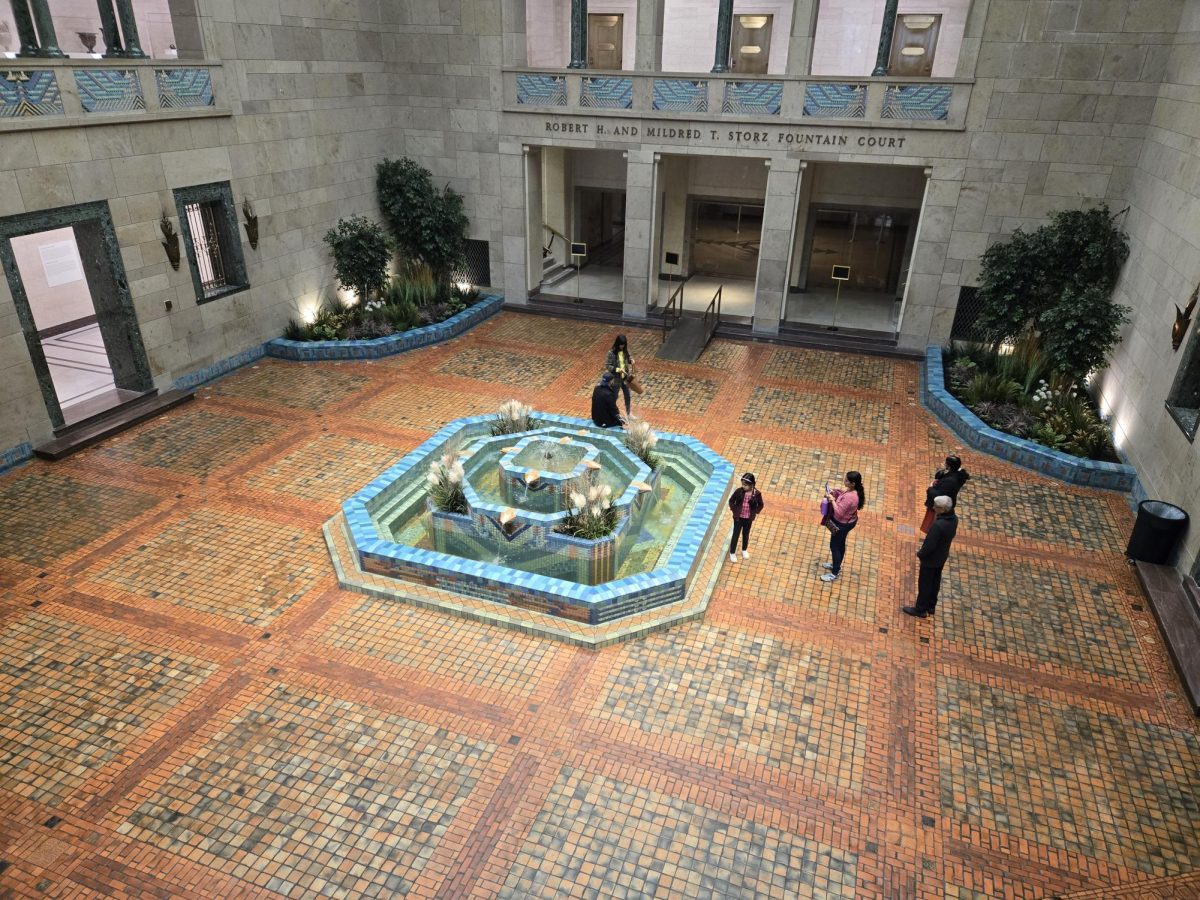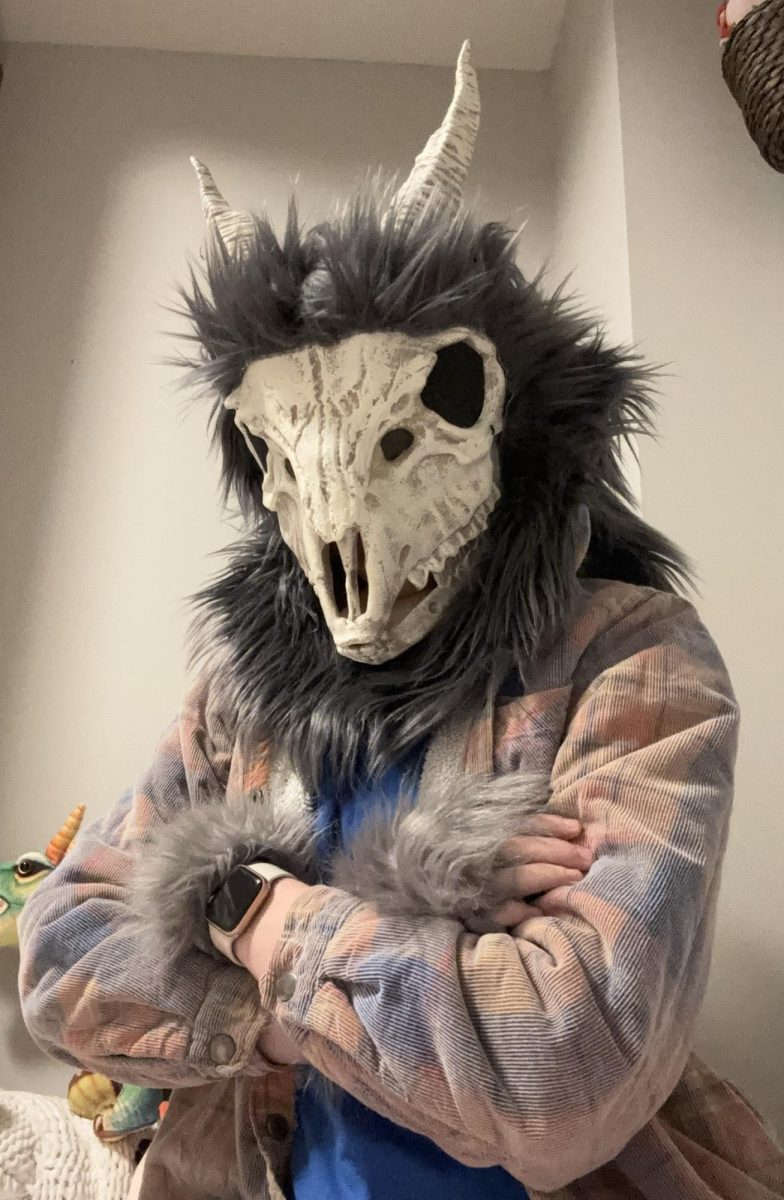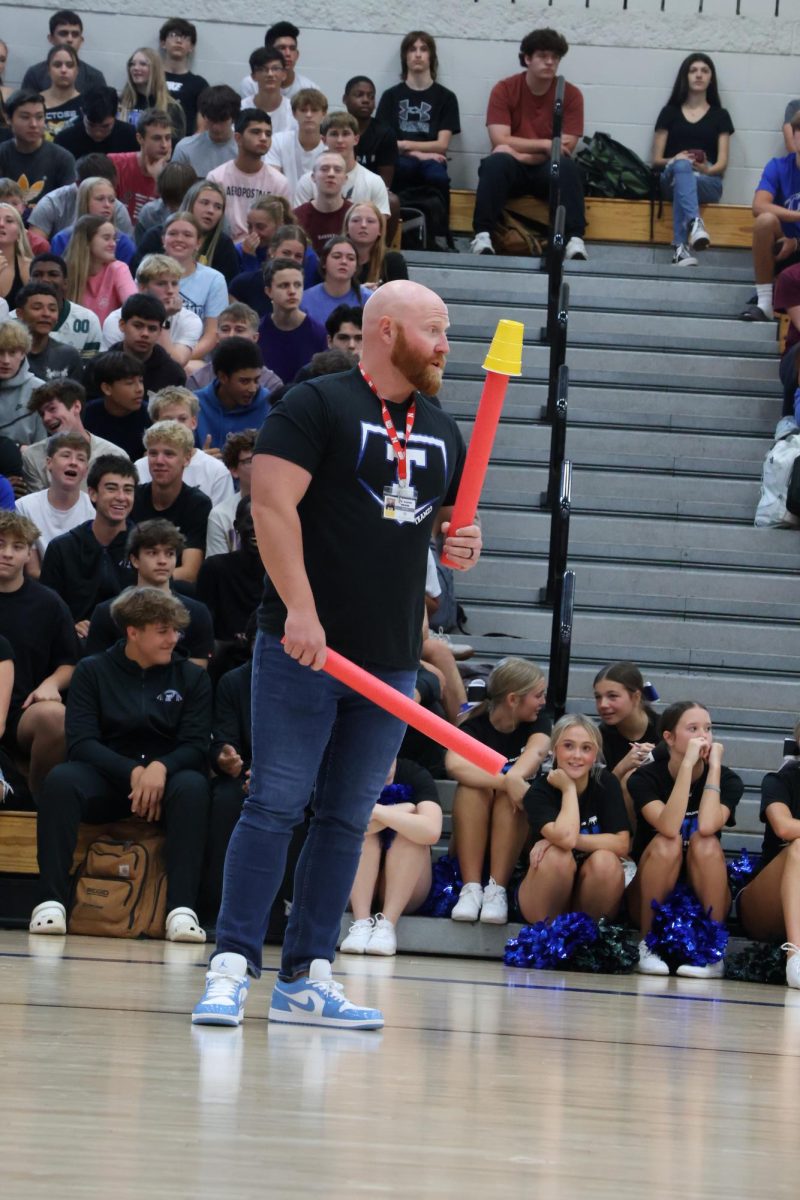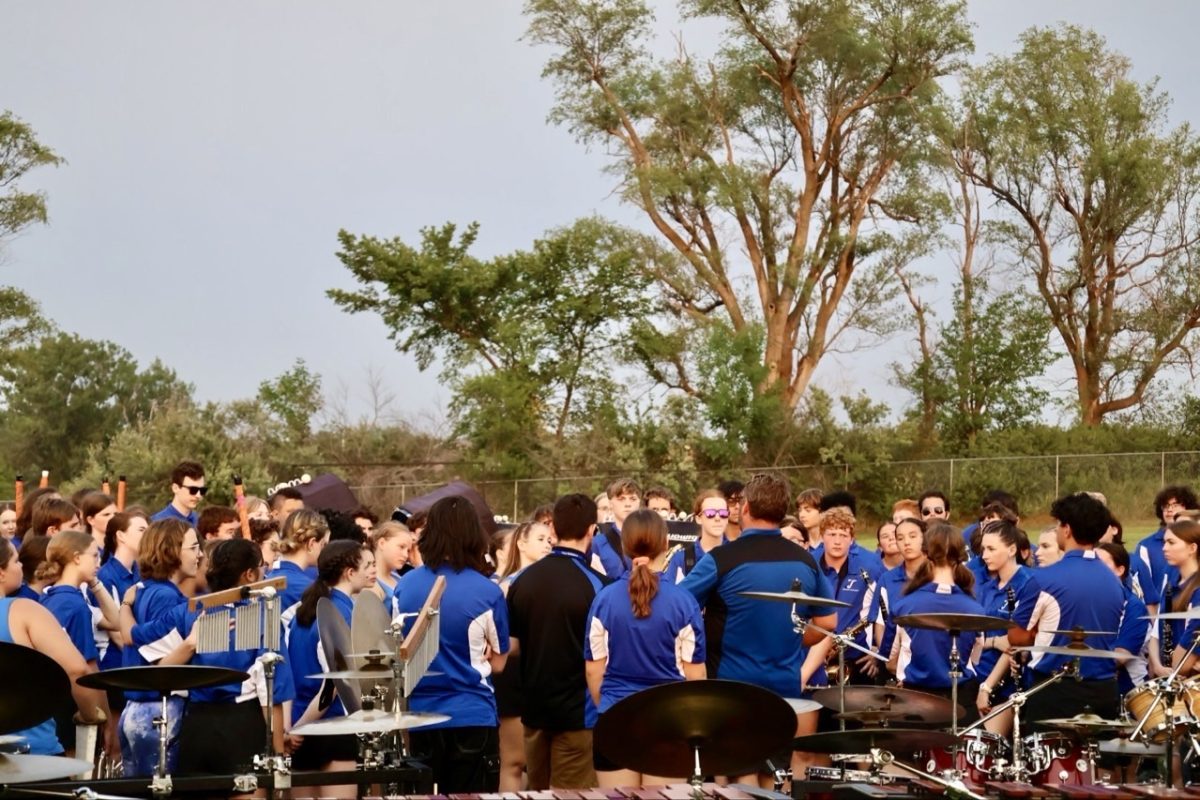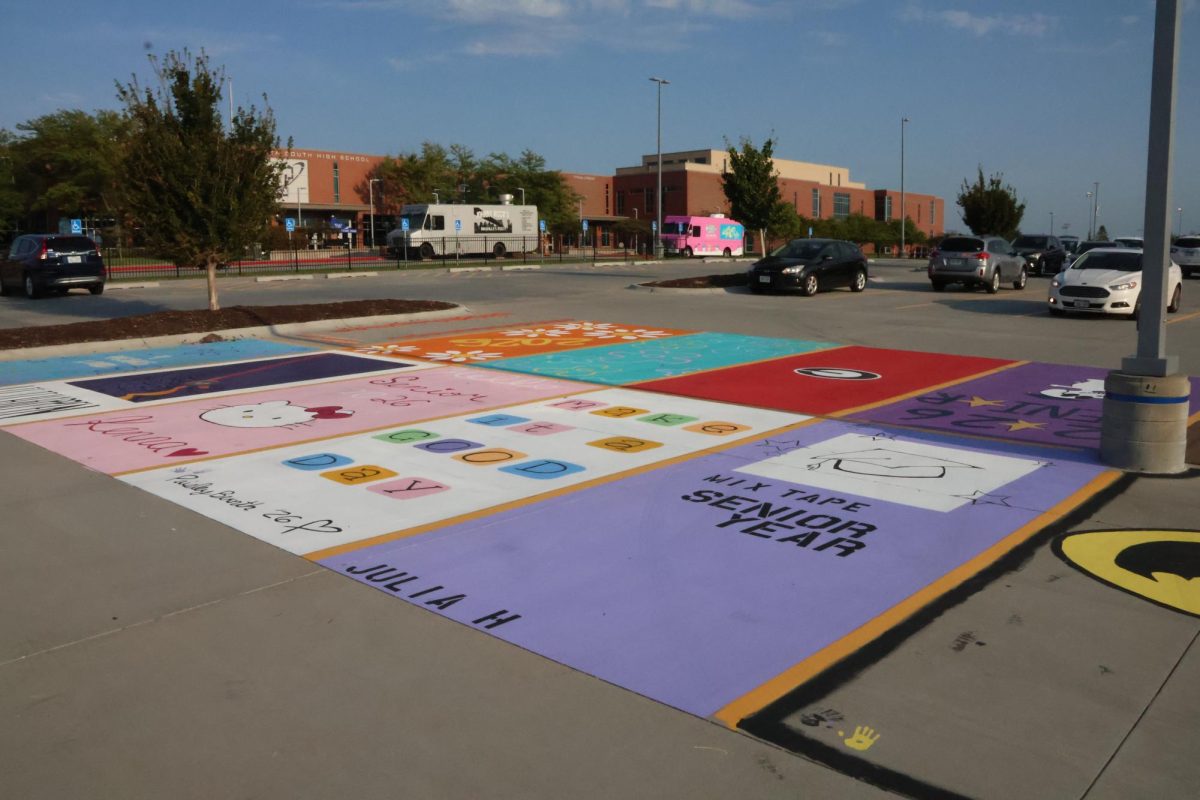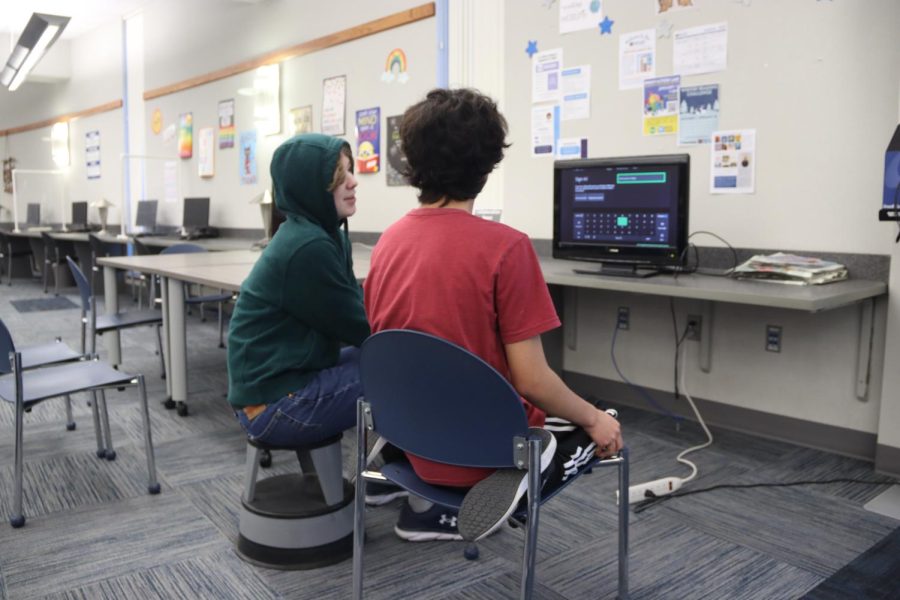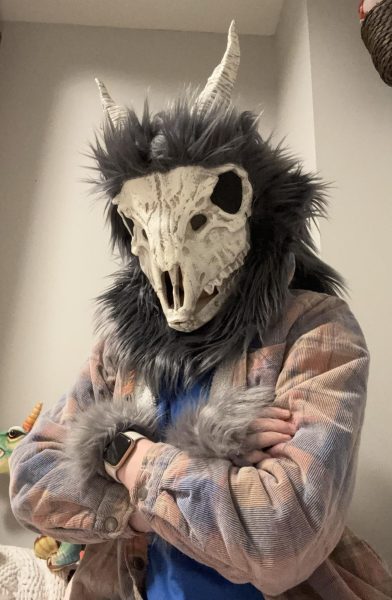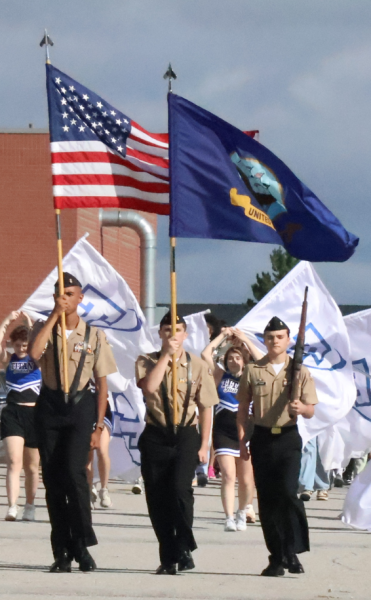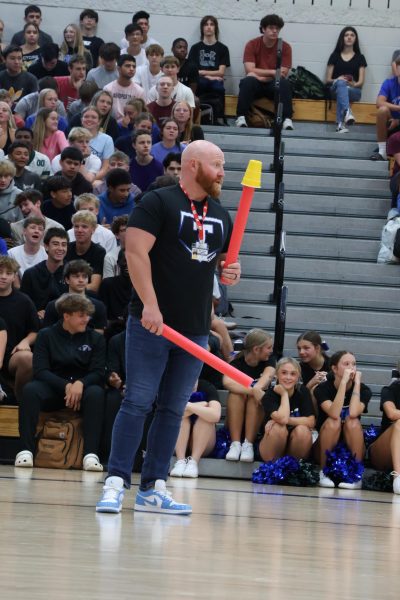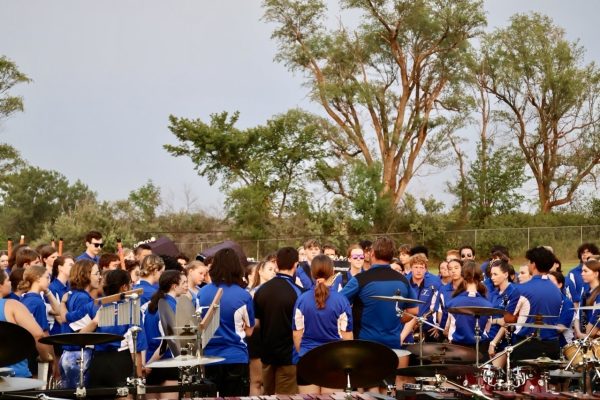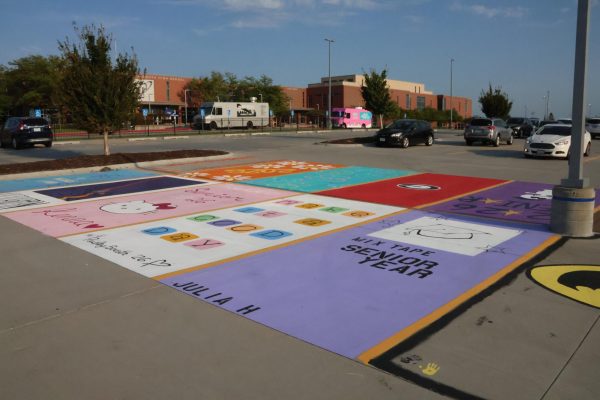Military life means far-flung friendships
Euro Miller, 9th, and Matthew Macugay, 11th, reenact childhood photo of them in Germany.
In the cafeteria, filled with chatter and laughter, students gathered before the dismissal of the morning bell. Two military students sitting with a mutual friend came to the topic of Germany – a topic that unbeknownst to them would lead to realization that the two had lived just down the street from each other in that faraway country and that they frequently had hung out together when they were younger.
“My first memory of him was when he was crying on the bus we took home and he was not supposed to take the bus at that time. At some point I was sitting with him, and after that we started talking a bit more and he ended up coming to my house a lot,” junior Matthew Macugay said.
“Every day, or at least most days, I would go over to his house, ringing the doorbell, and his mother would let me in. We just basically played video games for a couple of hours until dinnertime,“ freshman Euro Miller recalled. “It was just every day, after school, go to his house and play games.”
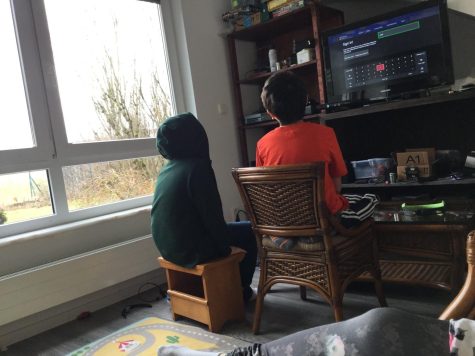
The families of the two were stationed in Germany when Miller was in second grade and Macugay in fourth. Due to their young age, there was a lack of communication after moving.
“Back then I didn’t have a phone or anything to communicate online with, and so when someone moves away, I just don’t talk to them ever again,” Miller said.
However, as some of the few Americans in their German village, the two were able to share that connection in a place that was culturally very different from the United States.
As the two sat together that morning before school, they did not immediately make the connection they had once known each other.
“[Matthew] just looks bigger, that’s really it. I recognized him before, but I didn’t think that much about it. I thought I recognized him, but I’ve seen a lot of faces,” Miller said.
It took a reference made by Miller for Macugay to question if Miller had lived in Germany and where. Macugay stated the village he once lived in, which left Miller shocked.
“I saw him get up from his chair and walk around, making some motions with his hands with a blown mind, and going: ‘This is crazy. That was my village.’ So I continued listing off other things,” Macugay said.
For most military families, this is uncommon to be reunited – but chance was in their favor. The possibility may be low, but the hope remains.
Freshman Abigail Locklear, who also comes from a military family, reminisced about one of her friendships, saying: “There’s always a chance we just end up in the same place again, which would be really interesting.”
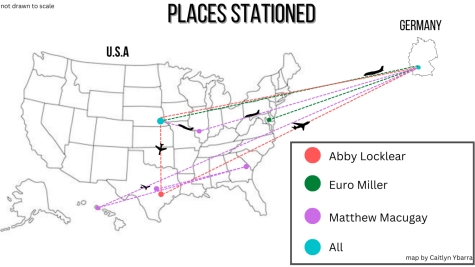
The challenge for many military children is the constant social changes when moving from place to place. “You’re leaving your entire life behind, and then you’re just coming into something that’s completely new,” Locklear said.
One of the toughest moves Locklear experienced was to Germany. “We lived in a hotel forever,” she said. “We didn’t have anything that was ours. A lot of it had to stay here, because there was a weight limit, and you just didn’t know anything. It’s a whole different culture. You don’t know what anybody is saying, so it was hard doing that.”
Another obstacle for military students who have moved from school to school is the difficulty in creating and sustaining friendships in comparison with students who have lived in Papillion their whole lives.
Guidance counselor Mr. Jim Whitcomb said he thought the biggest challenges for military students to create and sustain friendships would be: “The number of opportunities that they would have left in the given amount of time, if they’re coming in at high school age. They basically have one, two, three or four years of high school to try and cultivate those relationships.”
However, the inevitable moving often leads students from active military families to the advantage of being more adaptable.
“In a lot of cases, military families have most often moved more than once. What I’ve found in military students is, because they’ve made multiple moves, their social skills and their ability to make friends is a lot higher,” Whitcomb said.
Whitcomb added, “The good thing about today’s society is that there’s ways to keep in touch now that there weren’t before. I mean, you had the phone, but now you have all this extra media. If you had good friends back at your old school, you could email, text, do the social media thing. It would be hard to fit in though. You’re starting a new life at a new school. But at least there’s opportunities there to keep those [old friendships] going if you so chose.”
In this age of technology, both long-distance communication and close contact are made possible.
“I know I’ll still be able to stay in contact with all my old friends while still being able to make new ones,” Locklear said. “So I like to think that at my wedding I’ll just have a bunch of people from everywhere I’ve lived.”
With 9% of students in PLC schools being military, Papio South took the initiative to become a Purple Star School by making a commitment to support the unique needs of military involved students and families.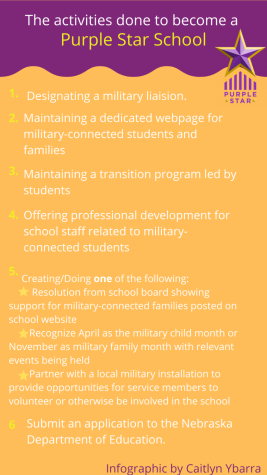
The Purple Star is basically saying: “We care about you guys; we know the transition is hard. How can we as a school make the transition easier?” said Mr. Bubba Penas, assistant activities director and dean of students.
Nevertheless, even with being a Purple Star School, there’s still a big difference in comparison to schools on a military base.
“The transition to school was easier when going onto base, because everyone else was a military kid and there were a lot of new kids. Everyone had moved and knew the experience, so they were more welcoming than people who have lived in the same place,” Locklear said.
Locklear described base schooling as: “The whole culture of the school is different. I remember my English teacher was talking about it one day, that you always know that one of your peers’ parents have a job, and a home, and food on the table at dinner. Everybody also had parents who pushed and encouraged them to learn. It was a much faster paced school with a lot less people who just don’t care about school.”
For military students transferring from international base schools to public schools in the United States, comfort can be found in the efforts toward making them more at home, events such as the Purple Star breakfast for military students and their families, colors dedicated to Military Child Month and those who’ve been deployed, and a scavenger hunt Papio South’s NJROTC unit hosted to recognize staff members with military connections and held on behalf of military students and family last year.
Your donation will support the student journalists of Papillion-La Vista South High School. Your contribution will allow us to purchase equipment and cover our annual website hosting costs.
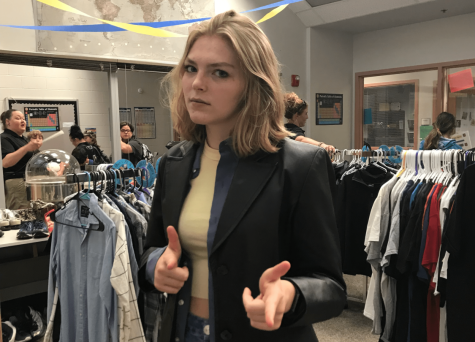
Hello! My name is Paige Miller. I’m a junior, and this is my first year on staff for Titan Legacy and South Star yearbook. I do photography, writing,...


![Pictured above is a structure that displays the names of Nebraska Vietnam veterans in order to “honor [their] courage, sacrifice and devotion to duty and country.”](https://plsouthsidescroll.com/wp-content/uploads/2025/10/Trey_092625_0014-e1760030641144-1200x490.jpg)
